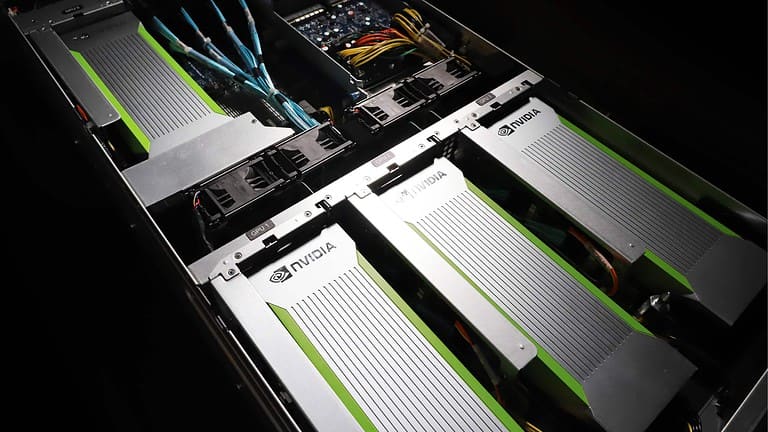Following a police raid in September, France is also taking on Nvidia in the courts. As a dominant supplier of AI chips, the company is alleged to hold an anticompetitive stance.
In a report on the generative AI market on Friday, France’s competition watchdog stated that there is a high risk of chipmakers abusing their dominant position. According to Reuters sources, that’s not all the French government agency is doing. An antitrust case is said to be in the works, even if it would not be made official anytime soon.
Software, not hardware
The exact nature of the allegations will become clear in due course. However, the watchdog already raised several issues in the report that it finds worrisome. Although the market share of Nvidia GPUs in datacenters worldwide covers 98 percent, it is not this particular dominance that the antitrust case may focus on.
While there is a chance that it could provide OEMs like Dell, HPE and Lenovo with a significantly less favourable deal than before given the scarcity of Nvidia chips, there is no sign of such a move. Nevertheless, it would be in line with expectations, as Nvidia allows very minimal profit margins for outside parties whenever it can do so. This has been the case for years with GPU partners such as ASUS, MSI and Gigabyte, which turn Nvidia chips into a complete video card with a PCB and cooler, targeting the consumer market. The more successful and the more dominant Nvidia is, the smaller the margins are for these partners. On the server side, a similar process has yet to take place. Last year, due to shortages, Nvidia already had to prioritize partners in this area who had been working with the GPU giant for quite some time.
Instead, CUDA, Nvidia’s self-developed API for optimal AI acceleration, is the main stumbling block for France. It is a closed-source solution that does not work on Intel or AMD GPUs. Translation layers are not allowed.
Chance of changes happening
Should the antitrust case indeed focus on CUDA, it has some chance of bringing about change. After all, there are alternatives such as oneAPI and the OpenVINO Toolkit that allow AI developers to operate on an open-source basis. It should be noted that these options therefore also work on Nvidia chips. Developers are free to move away from CUDA already without switching GPU vendors.
The French could be aiming to roll back the ban on CUDA translation layers. This would allow users to run CUDA-based software on Intel or AMD hardware. A return of options like translator ZLUDA would be possible as a result.
Either way, Reuters reports that France is now responsible for bringing a case. Because the French are already preparing charges against Nvidia, the European Commission is said to be holding off on initiating its own case at the moment. The maximum penalty is 10 percent of Nvidia’s annualized revenue, although a lower fine or concessions from the AI chipmaker are more likely to emerge. Indeed, should the company be willing to make changes that satisfy the French, there need not be a financial penalty.
Also read: Cerebras, maker of wafer-scale AI chips, prepares for IPO
